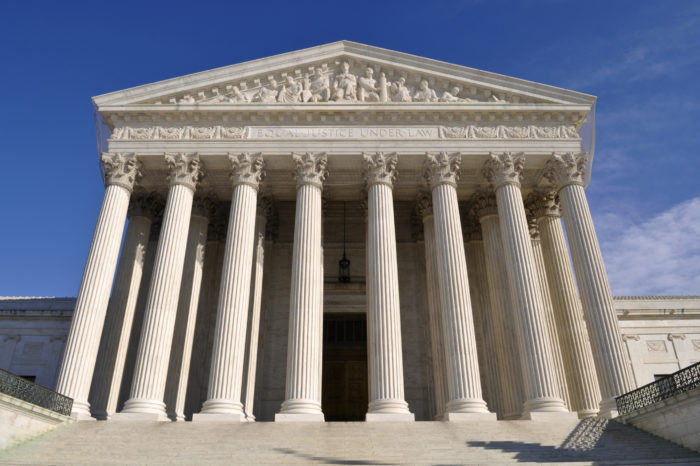PioneerLegal Signs onto Amicus Briefs Urging U.S. Supreme Court to Hear Two Cases with Local Impact
Petitions would affect group of local educators challenging compulsory union payments
BOSTON – Pioneer Institute, through its public interest law initiative PioneerLegal, has signed onto amicus briefs at the invitation of the Pacific Legal Foundation that support petitions for the U.S. Supreme Court to hear two cases that would have a direct impact on Massachusetts.
It is settled law that public employees who choose not to belong to the union that represents them can’t be required to pay fees to the union that would fund political activity. However, in 1977 the Supreme Court ruled in Abood v. Detroit Board of Education that employees who are not union members can be required to pay an “agency fee” that covers union contract negotiation costs.
In one of the cases the Supreme Court is being asked to hear, Janus v. AFSCME, an Illinois public employee sued, claiming that being forced to pay the agency fee violates his First Amendment right to freely express dissent. In Hill v. SEIU, a group of personal care and child care providers, also from Illinois, challenged on First Amendment grounds a state law that grants Service Employees International Union officials exclusive monopoly power to bargain with state government on behalf of the caregivers.
“Most observers believe there’s a good chance the Supreme Court will take on one or both of the cases,” said Pioneer Institute Senior Fellow in Law & Public Policy John Sivolella. “The Court has already called the Abood decision into question in recent rulings.”
The outcome of the petitions will have an immediate local impact because a group of Massachusetts educators has petitioned the Commonwealth’s Supreme Judicial Court to hear a case challenging payments they’re compelled to make to unions as a condition of employment. The SJC will likely delay its ruling pending the outcome of the federal petitions.
About Pioneer
Pioneer Institute is an independent, non-partisan, privately funded research organization that seeks to improve the quality of life in Massachusetts through civic discourse and intellectually rigorous, data-driven public policy solutions based on free market principles, individual liberty and responsibility, and the ideal of effective, limited and accountable government.
About PioneerLegal
PioneerLegal, as the public-interest law initiative of the Institute, utilizes a legal-based approach to work to change policies that adversely affect the public interest in the Institute’s core policy areas.



